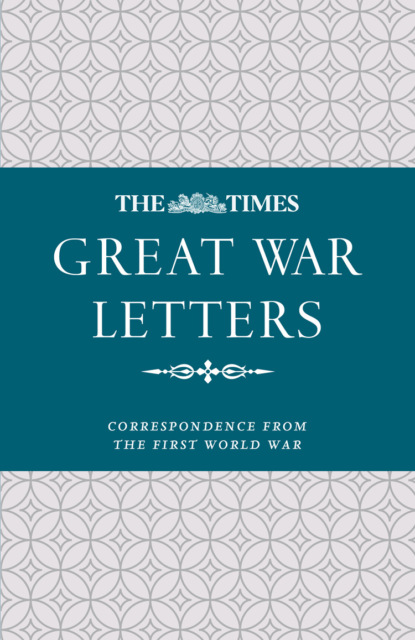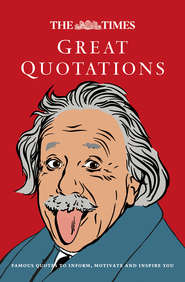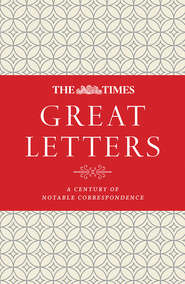По всем вопросам обращайтесь на: info@litportal.ru
(©) 2003-2024.
✖
The Times Great War Letters: Correspondence during the First World War
Автор
Год написания книги
2019
Настройки чтения
Размер шрифта
Высота строк
Поля
I am, Sir, your obedient servant,
HOLCOMBE INGLEBY
OVAL OR INTELLIGENT?
17 February 1915
SIR,—A LITTLE LIGHT might be shed, with advantage, upon the high-handed methods of the Passports Department at the Foreign Office. On the form provided for the purpose I described my face as “intelligent.” Instead of finding this characterization entered, I have received a passport on which some official, utterly unknown to me, has taken it upon himself to call my face “oval.”
Yours very truly,
BASSETT DIGBY
HELP FOR ARTISTS
23 February 1915
SIR,—IN WEDNESDAY’S issue of The Times there was printed a report of a public meeting held to consider means for assisting distress in the artistic professions. That art is one of the luxuries of life which cannot at this time expect public support is a view held by most people. But surely if art be in truth the noble and inspiring thing our foremost statesmen annually assure us it is, it should be of service in time of war as well as in time of peace. Your leader writer to-day writes warmly commending the spirit shown by those painters who are giving their works for the benefit of the Red Cross Fund. It must be remembered that only painters whose names are generally known can well offer their services on such an occasion. There are other ways of serving, and throughout the country there are numbers of men and women, not painters only, but followers of every kind of craft, eager to devote their skill and energy to the service of the Empire. In order that their services be employed it is not charity which is needed, but a wider understanding of the fruitful use to which their talents may be put. In past ages the practical value of the artist’s vision has been shrewdly appreciated. To-day we have schools and public buildings of every kind which might bear witness to the constant beauty of men’s vision, hospitals which may be so decorated as to bring renewed hope to the sick and wounded. The war, which brings suffering and distress to so many, also brings added prosperity to many industries. May not some of our industrial leaders be persuaded to employ local craftsmen to decorate workshops and factories, shops and city offices, both outside and within? A few thousand pounds spent in London and our great provincial cities would provide rich opportunities for a great number of eager craftsmen, so many of whom are now unemployed, and would serve to convince people more eloquently than even the passionate appeals of Ruskin and William Morris what skill and beauty live in the hands and hearts of men.
Many of our provincial galleries have funds for the purchase of contemporary paintings, and a part of these, increased by the generosity of public-spirited citizens, might well be used for the decoration of local public buildings. Will not the Trustees of the National Gallery, of the British and Victoria and Albert Museums, set an example to the country by devoting some small portion of their funds, usually dedicated to the purchase of ancient works of art, to some such purpose?
We are already so rich in works of the past, so poor in public expression of our own vision. I believe able and inspiring men could be found who would gladly give their time and experience to such a cause, under whom younger men and women would be proud and willing to work for modest remuneration.
Faithfully yours,
W. ROTHENSTEIN
RACING AND FOOTBALL
4 March 1915
SIR,—LORD ROBERT CECIL, speaking in the House of Commons, asserts that football and horse-racing are on exactly the same footing. I am curious to know how he arrives at this conclusion. Football is played with a ball and 22 strong and sturdy young men. Racing is played with horses, ridden by small men, the majority under 8st., and never more than 9st. A football when its day is over is useless. Racehorses when they can no longer race, if they have proved themselves on a race-course to be sound and good, retire to the stud, where, as stallions or brood mares, they continue the stock of the English thoroughbred, which forms the foundation of horse-breeding in this country, and from which have come those horses that, in the earlier stages of war, rendered such invaluable service. To be a good football player you must be big, strong, courageous, active, and alert, all the qualities you look for in a soldier. To be a good jockey, you require these qualities, except that instead of being big, you must be small—no one can be a jockey who weighs over 9st., and a large majority weigh very much less. Consequently they are not fit to be soldiers.
If there was no racing a great many people who are unfitted for other employment would be thrown out of work; can anyone say that the same result would arise if those professional football matches did not take place? If professional football matches were not allowed, it would not stop football; and there can be no one who wants to stop it when played as a game—but if race-meetings are stopped, the whole machinery comes to a standstill, and needless loss is caused to every one connected with it. The arguments for the continuance of racing are many, there are also arguments against it, and for which we most of us have sympathy, but the former outweigh the latter considerably, and I can say from my own personal knowledge that many owners of racehorses, had they simply studied their own inclinations and convenience, would have shut up their racing establishments at the beginning of the war.
Yours, &c.,
GEORGE LAMBTON
The Football League was shortly to suspend competitive matches. Horse-racing continued for another two years.
FOOLISH OPTIMISM
6 March 1915
SIR,—I HAVE BEEN ASKED to repeat in the form of a letter to you some of the remarks that I made in the City yesterday.
I was dealing with actual and impending strikes, and I said that such action, taken by men so patriotic, could only be explained by the fact that those concerned did not in the least appreciate the extreme gravity of the crisis in which our country still finds itself. They think, or many of them think, that the crisis is past, that all is going well with the Allies, and that the war will very soon be over. How can we wonder that such a deplorable impression should exist? The Press Bureau consistently slurs over bad news and exaggerates good news. The Press lays every emphasis by poster, headline, and paragraph on all that side of the war which is flattering to our pride or soothing to our excited feelings. It keeps further in the background the news which is disagreeable to us, and the result is that our sense of proportion is being destroyed, and that perspective is ceasing to exist. I could multiply instances of what I mean. Frequently lately we have seen a roll of casualties of some battalion in Flanders amounting to 200, 300, 400 men, or even to half a battalion. These casualties took place in February, January, or December, but who can recollect that at the time he received any impression of such a loss by the news published? The fact is that these casualties have usually occurred when we have lost a trench or a line of trenches, and the men holding them have been killed or made prisoners. A day or two after this had happened we were probably told that a trench which had been lost had been brilliantly recaptured, but we had never been told previously that we had lost the trench, and we were never told at the time what the loss of the trench or its recapture had cost us.
When the Prime Minister spoke in the House of Commons the other day he spoke with quiet confidence as to the issue of the war. He was quite right, and we all share that confidence; but I do wish that he had laid more stress on the extreme difficulty and gravity of the task which still lies before us before a successful issue can be reached. The naked facts of the situation are that, notwithstanding the magnificent courage of the soldiers of the Allied Armies, the Germans are holding very nearly the same ground in France and Belgium as they held four months ago, and that the Germans and the Austrians together have been able to hold their own in the Eastern field of war against the splendid endurance of the Russian Army. The silent pressure of the Fleet has no doubt caused much inconvenience to the German Government and some hardship to the German people, but there is no more likelihood of Germany than of the Allies being starved into an early submission.
My own belief is that at the very best there are many months of cruel war before us and that we have need of every effort which every civilian in the United Kingdom can make, as well as of every effort of the seamen in the Fleet and of the soldiers in the trenches; and that far the greatest danger which now confronts us is lest slackness in the United Kingdom, from whatever cause arising, should protract the war many months beyond the time at which it could otherwise be finished. As a people we cannot be frightened or depressed into panic by bad news; we can very easily be made too confident by good news. If those who control the Press Bureau understood the temperament of their fellow-countrymen they would not only never conceal any bad news from them, they would lay all the stress upon it which it could honestly bear, and they would be very careful not to give any good news a prominence at all disproportionate to its importance in the vast scale of the war. I have said that we all agree with the Prime Minister in quiet confidence as to the issue of the war, but that confidence must be conditional on the belief that the people of the United Kingdom will fight the war through in the United Kingdom in the same spirit in which they began it.
I am, Sir, your obedient servant,
SELBORNE
SUBMARINES: AN OFFER
9 March 1915
SIR,—THE PATRIOTIC OFFER of Mr. Hoult in The Times of to-day of £500 to the captain and crew of each of the first four vessels of the British mercantile fleet who destroy a German submarine—followed by the excellent letter from Sir Oliver Lodge saying that £1000 would not be a penny too much for the nation to pay to men who risk their lives in such a service, induces me to say that I shall be prepared to add £100 to each of Mr. Hoult’s £500 patriotic donations. I do this also in the further hope that four of my old friends who have the means will follow suit and add four times the £100 to make the donations up to £1000 to each gallant captain and crew. Truly their lives are worth more than that to us all. Of course, if those lives are sacrificed in the service, the amount will go to their dependents.
Submarine is at best a sneaking kind of warfare, and the sooner it is extinguished among “Kultur”ed nations the better.
I am, Sir, yours faithfully,
HENRY KIMBER, Bt.
WOMEN’S DRESS IN WAR
11 March 1915
SIR,—MAY I, WRITER ON fashion, plead its cause so ruthlessly snubbed by “A Husband” in your Tuesday columns? I need not advance the “good for trade” argument; the emergency work rooms conclusively point to its essential value. I would urge as an unanswerable excuse for new clothes their exhilarating effect upon nine-tenths of womankind. Women want some panacea these times, some distraction from sorrow and suffering. It is on record that a teagown has proved an incentive to the bed-bound to seek the sofa, and that a becoming hat is a tonic strong enough to make a persistent invalid go for a walk. Also I can assure “A Husband” that no great expenditure is required to conform the costumes of yesteryear to the rules of this. The addition of a kilt to the walking dress and a tulle tunic to the evening dress will do the trick, and not a few dressmakers whose names I will reveal on demand gladly undertake these renovating jobs on reasonable terms. All grief and no joy makes Jill a dull creature; and even “A Husband” may benefit by the improved spirits of a cheery victim to the dress habit.
Yours faithfully,
(MRS.) E. ARIA
THE CASE FOR AMUSEMENTS
13 March 1915
SIR,—MAY I IN THE midst of profound grief be allowed to express a humble opinion as to what I conceive to be one’s duty in the colossal task that we have before us? The outcry of certain people against all forms of entertainment and recreation during this crisis seems to me a false cry. To “entertain” means to engage the attention and to occupy it agreeably, and to “recreate” means to refresh. Many of us earn our livelihood in ways that appear not vital to national existence. But what is vital? At the present moment all that is vital to our existence as a nation is the wherewithal to carry on the war to a successful issue. It is our duty to provide this first and foremost. Equally with this it is surely our duty to provide those who are dependent on us with the necessities of life. There are hundreds of thousands of men and women unfit and unqualified to help their country in a direct way at the present moment, but for whom paid employment is as individually vital as our national existence. Is it not better for such as cannot fight for their country to earn a living even in racing stables, in theatres, and music-halls, or as novelists, artists, musicians—in fact in a hundred other ways—rather than starve or live upon the charity of the already overburdened ratepayer? Looking at it from an economic point of view the question presents an aspect that is vital, not only to those who are directly concerned, but to the millions who are only indirectly affected. The manufacture and consumption of the superfluities of life outweigh the necessities to an extent impossible to calculate. To stop racing, to close theatres and music-halls, to put an end for the time to literature, art, music and—if we are to be logical—to cease the consumption of wines, the manufacture of spirits, beer, tobacco, jewelry, or even the cultivation of flowers, must inevitably result in a reduced circulation of money and a corresponding increase of taxation, which would prove the ultimate ruin of those few industries vital to the existence of a great nation.
Yours faithfully,
GERALD DU MAURIER
Du Maurier’s brother and his nephew, one of the children who inspired the writing of Peter Pan, had recently been killed.
THE STATE AND WOMEN’S LABOUR
19 March 1915
SIR,—THE ANNOUNCEMENT by the President of the Board of Trade that a register of women for war service is to be opened at the labour exchanges throughout the country will no doubt evoke the same patriotic response to national service which has characterized the attitude of women towards the emergency created by the war. This organized effort on the part of the State to register and employ “the reserve force of women’s labour, trained or untrained” will be welcomed by the many women’s societies already engaged in this work of classification as an earnest of future co-ordination.
In the official statement setting out the Government scheme we find the following paragraph, “Any woman who by working helps to release a man, or to equip a man, for fighting does national war service. Every woman should register who is able and willing to take employment.”








